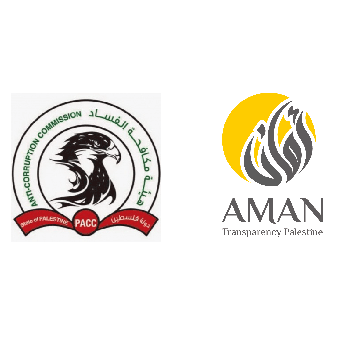
Developed and managed entirely by Transparency International (TI), the Global Corruption Barometer (GCB) – Middle East and North Africa covered six Arab countries, including Palestine. In view of the internal consequences of the GBC results; in pursuance of the public interest; to safeguard freedom of opinion and expression; in appreciation of the great efforts made by all government institutions and civil society organisations to eliminate corruption, prevent impunity and create an immunised environment against corruption across Palestine; and in a manner that befits our people and their sacrifices, the Advisory Board of the Palestinian Anti-Corruption Commission (PACC) and Coalition for Accountability and Integrity (AMAN) held an urgent meeting on Friday night at the PACC offices in El-Bireh. Discussion focused on how the GCB results would be addressed and dealt with.
The PACC and AMAN agreed as follows:
Having released the GCB results over the past days, months and years, AMAN made clear that, “as an important think tank and knowledge centre that produces reports and indices on integrity and fight against corruption, the Coalition is convinced that tremendous efforts have been exerted by the PACC and its partners to combat corruption in Palestine.” Corruption is increasingly dwindling in comparison to the early years of the Palestinian Authority. However, citizens do not sense these efforts. For different reasons, the anti-corruption effort does not reflect on citizens’ perceptions. These reasons are in part a result of political despair by the ongoing occupation, internal Palestinian political divide, chronic economic crisis, and declining public confidence in national institutions. Together with all government agencies and civil society actors, the PACC is joining forces to remedy this situation over the upcoming three years of the Palestinian National Cross-cutting Strategy for Fight against Corruption.
Contrary to some media reports, AMAN asserted that “TI has not presented any written or verbal positions, stating that Palestine ranks second after Lebanon in terms of the most corrupt countries.” Compared to the surveyed Arab countries, Palestine is placed in different rankings. On average, however, Palestine has an average to good ranking in comparison to the rest of GCB surveyed countries.
